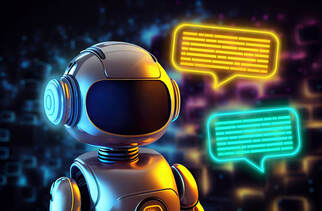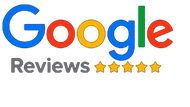ChatGPT, Midjourney, & Other AI-Content Creators: What Are Their Roles in Creative Writing?5/3/2023  For months, I’ve tracked ChatGPT and Midjourney’s development and what users have been able to create with the platforms. I am fascinated by their evolution and in their apparent exponential progress—especially since I’m a science-fiction author. But when it came to artificial intelligence affecting my company or editing in any capacity, I thought, “Eh, I’ve got time. It doesn’t really have anything to do with book editing. We’re good.” It remained on my periphery—until it plowed into me like (insert relevant sports metaphor here). Humanity’s proclivity for creative endeavors is what makes it unique. Our ability to elicit exquisite emotion from written word is arguably one of the most prominent attributes that makes humans, human. No other species on Earth has developed, evolved, and sustained a written language that can transcend time. Humans have used the written word to store information, make a permanent record of important events, and to communicate. Writing (among other talents) is what separates us from all other living beings. Creative writers—that is, people who write books (both fiction and non-fiction)—epitomize this skill. They have taken a learned talent that is universally taught and transformed it into a beautiful, non-replicable form of communication and storytelling. They have learned to describe in sweet detail the serenity of a sunny glade in a forest and to illustrate a gritty battle between long-time friends who have found themselves on opposing sides in a war; they have developed the ability to chronicle the physiological effects of anxiety and depression on the human body and to concisely explain how effective leadership can influence a business’ bottom line. Writers are writers because they fostered self-discipline and practiced their craft. The insertion of AI-created content into the creative realm is alarming, to say the least. I recently prompted ChatGPT to “write a love song,” and it did—poorly. But that doesn’t mean it won’t continue to evolve and better its responses. I asked the AI to write a short story about a navy pilot, and it did—poorly. To an untrained eye, the story seemed… okay. But for someone familiar with military protocol, ranks, and equipment, it was laughable. Still, it’s only going to get better. And that’s what’s so frightening. Aside from the implications of involving AI-created content in politics, diplomacy, and civil rights, the idea of ChatGPT and its descendants earning an active role in creative endeavors is offensive. Utilizing it to brainstorm, analyze, and synthesize is fine. I have nothing against interacting with it in that regard. However, asking it to write a story or to explain a complex subject in simpler terms (responsibilities belonging to an author) invalidates the years of hard work human writers have cultivated. As an author, I am personally against any type of AI-created content being used in a creative fashion. It goes against what a writer is, the embodiment of an inspired spirit. It’s the same with artists of all flavors. When we assign a computer a job that has, for all of humanity’s existence, belonged solely to humans and that has separated our species from others, we risk losing our identity. I know, I know—I sound like one of those sensationalized nay-sayers who adamantly declares that computers are taking over human jobs and that we should implement swift legal recourse to protect the human worker. No, let me clarify. As our technology advances and automation becomes readily available in every industry, we as a species will also evolve. But when it comes to creative endeavors and a constantly-learning computer attempting to replicate that which identifies us as human, artificial intelligence crosses a line. Already, hordes of people utilize ChatGPT to “write” low-effort books which they then publish on digital platforms like Amazon KDP—all to make a quick buck. We as a collective must establish a universal code that promotes human originality over the responses of an AI and that discourages the use of computers to generate “art” while not limiting the evolution of such technological advancements. I most certainly don’t have the answers, and you probably don’t either. This is an ever-changing and complex subject that requires research in a variety of fields to better assess the effects artificially intelligence platforms like ChatGPT, Midjourney, and Quillbot have on society and humanity’s identity.
2 Comments
6/25/2023 03:41:28 am
I'm still wondering how Google will tackle everyone writing content using AI. Will we be penalised for using ai?
Reply
6/25/2023 03:43:17 am
I've seen many companies get penalised for using content and their rankings plummet.
Reply
Leave a Reply. |
Kara WilsonOwner/Editor of Emerging Ink Solutions, avid YA/NA author, adamant supporter of the Oxford Comma, anime and music enthusiast. Archives
February 2024
|
 RSS Feed
RSS Feed
